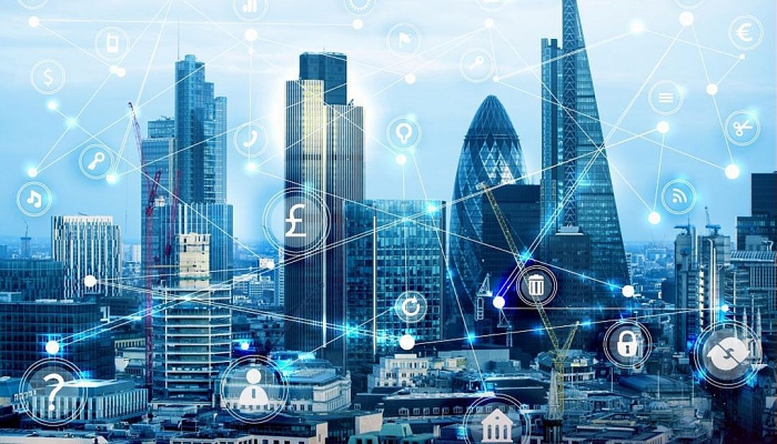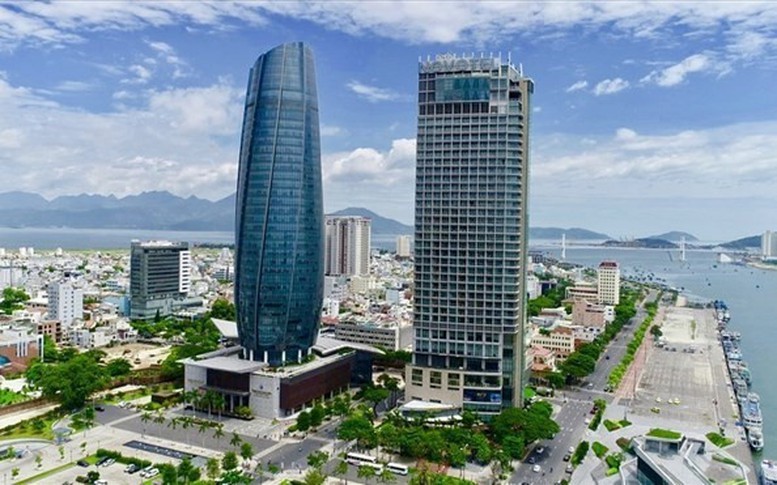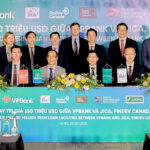
Bringing the International Financial Center into operation by the end of 2025.
Prime Minister Pham Minh Chinh, Head of the Steering Committee for the International Financial Center in Vietnam, has just signed Decision No. 114/QD-BCDTTC dated August 1, 2025, issuing the Action Plan for the development of the International Financial Center in Vietnam.
The goal of this plan is to establish and operationalize the International Financial Center (IFC) in Ho Chi Minh City and Da Nang by the end of 2025. This is a breakthrough move to attract medium and long-term financial resources, providing a foundation for Vietnam’s socio-economic growth in the new phase.
Simultaneously, it aims to complete a specific legal framework for the IFC, ensuring a systematic, transparent, and superior mechanism. This includes policies and incentives to attract capital, technology, modern management methods, high-quality human resources, prominent financial institutions, and international investors. Accompanying these are appropriate monitoring, supervision, and risk management mechanisms to ensure national financial and monetary security.
The plan also focuses on developing essential infrastructure and services (transportation, telecommunications, logistics, etc.) in Ho Chi Minh City and Da Nang to support the IFC’s operations. By the end of 2025, several key infrastructure projects will be completed to ensure seamless connectivity for the International Financial Center.
Building a Modern Financial Ecosystem
The Steering Committee sets the goal of constructing a modern financial ecosystem, promoting new markets (commodity and carbon exchanges), high-tech financial services (fintech and digital banking), and high-quality human resources to serve the IFC. It aims to initially establish a support services ecosystem (legal, auditing, technology, etc.) that meets international standards in Ho Chi Minh City and Da Nang by 2025.
An effective coordination and supervision mechanism is also a priority: perfecting the management apparatus for the IFC to ensure clear roles, tasks, timelines, products, responsibilities, and authority as directed by the Prime Minister. It ensures close coordination between ministries, sectors, and localities during the implementation process.
Based on these objectives, the deployment plan proposes key tasks with a timeline from July to December 2025. These tasks include:
1. Complete the legal framework and specific institutions for the IFC:
Develop decrees guiding Resolution No. 222/2025/QH15; perfect the management and administration apparatus for the IFC.
2. Develop strategic infrastructure and urban space for the IFC:
Expand space and accelerate infrastructure construction; focus on soft infrastructure.
Regarding space expansion and infrastructure development, Ho Chi Minh City will expedite the preparation of physical infrastructure and facilities to establish and develop the financial center in the Saigon, Ben Thanh, and Thu Thiem wards, covering approximately 793 hectares. Da Nang will review, complete, and prepare the necessary infrastructure for the IFC in the city.
For soft infrastructure, Ho Chi Minh City will: (i) Complete telecommunication and energy infrastructure in Saigon and Ben Thanh wards, ensuring technical conditions for digital transactions, fintech, and digital banking; accelerate the deployment of 5G network coverage in the IFC area, the city center, administrative, healthcare, educational, transportation, cultural, and tourist areas, as well as key residential and commercial areas; (ii) Invest in digital infrastructure in the Thu Thiem area, designated as the IFC.
Da Nang will invest in computing, storage, and smart monitoring and management infrastructure systems at Software Park No. 2 to serve the IFC. They will promote the deployment of 5G networks in the IFC construction area and across Da Nang; provide guidance and invest in building a blockchain network in the city to pilot digital asset and NFT products. The city will continue to refine national standards for IOT, AI, Big Data, 5G, and data standards,…

3. Develop financial services, markets, and priority products:
Implement controlled financial experimentation policies for fintech and innovative services; expand and upgrade commodity exchanges; develop high-quality financial products and services; and establish investment incentives.
4. Develop human resources and a supportive ecosystem for the IFC:
Alongside infrastructure development, focus on building a high-quality workforce and a conducive business environment for the financial center, including training and attracting high-caliber financial talent; fostering an innovative and financial technology ecosystem; and ensuring security, order, and an attractive living environment.
5. Organize delegations to study international experiences in financial centers.
6. Coordination, monitoring, and supervision mechanisms.
The Prime Minister has requested that ministers, heads of ministerial agencies, government agencies, and the Chairpersons of the People’s Committees of Ho Chi Minh City and Da Nang base their detailed plans on this Action Plan and implement it effectively. They should closely monitor the progress of assigned tasks, ensuring timely completion and quality. Any difficulties, obstacles, or emerging issues should be promptly addressed according to their authority or reported to higher authorities for resolution.
The Ultimate iPhone Upgrade: Apple’s New Trio Takes Over Vietnam
The latest iPhone models have mysteriously vanished from the shelves of authorized retailers across Vietnam.
“VPBank Secures a Monumental $350 Million Agreement for Sustainable Growth.”
“VPBank joins forces with renowned global development institutions, SMBC, BII, EFA, FinDev Canada, and JICA, in a groundbreaking partnership. Together, they have secured a landmark loan, a pivotal step towards financing Vietnam’s sustainable and eco-friendly future. This collaboration marks a significant milestone in the country’s journey towards a greener tomorrow.”












































